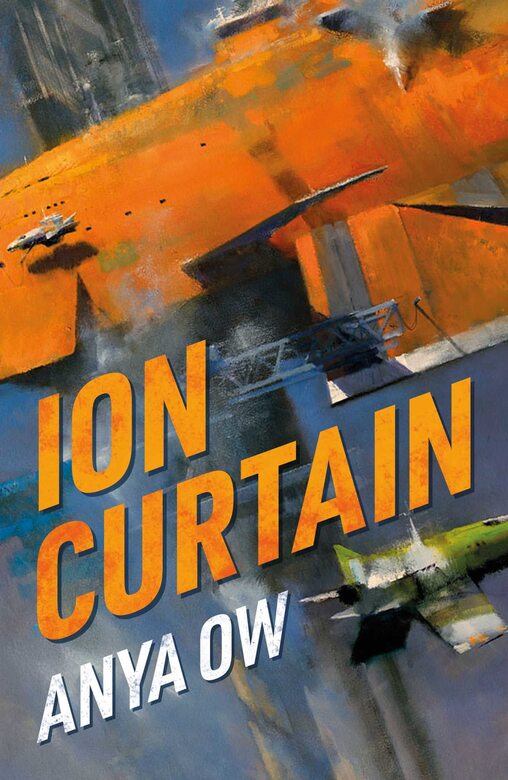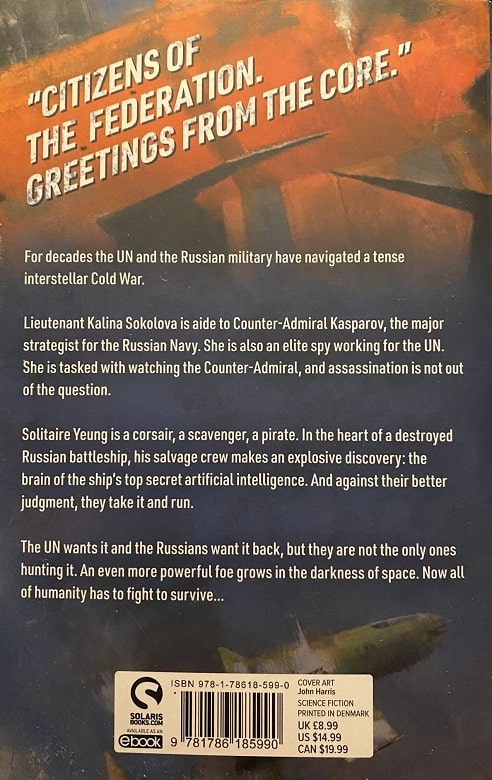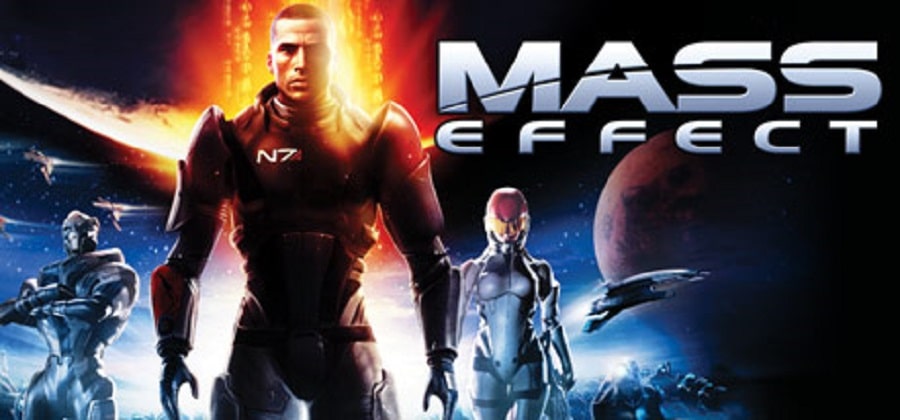New Treasures: Ion Curtain by Anya Ow
 |
 |
Ion Curtain (Solaris, July 19, 2022). Cover by John Harris
I love Space Opera but, wow. Why does is exclusively seem to come in 5-book series? Aren’t there any bite-sized nuggets of Space Opera out there that don’t require a three-month commitment? Something that I could enjoy in, say, a weekend in early March?
Solaris Books to the rescue. Anya Ow’s second novel Ion Curtain is a fast-action slice of Space Opera that includes sinister machine intelligences, derelict spacecraft, galactic war, and a plucky crew of space rogues. Publishers Weekly calls it an “addictive space opera… Unexpected humor and thrilling action punctuate this space opera adventure,” and that pretty much tells me everything I need to know.
James Nicoll has a more thorough summary at his blog:
Solitaire is an intelligence agent turned freebooter. When his starship Now You See Me happens across the hulk of a Federation warship, Farthest Shore. Solitaire sees the chance for quick salvage. That’s foiled by the appearance of Federation Commander Viktor Kulagin’s perfectly functional warship and Kulagin’s pointed death threats should Solitaire’s crew attempt to salvage the very curious device at the heart of the derelict. The threats only confirm the value of the device. Solitaire flees with the mysterious thingie safely stowed on board. As one does.
Counter-Admiral Kasparov’s estranged daughter died with the rest of the Farthest Shore. He is highly motivated to discover what mishap befell that ship. Senior officers do not as a rule carry out field ops. Conveniently for Kasparov, he has the perfect candidate to handle the matter in his stead.
Aide-Lieutenant Kalina Sokolova is astonished and alarmed when the Counter-Admiral reveals that he has known all along that she is a UN Jinyiwei mole. Her assignment was to monitor the Counter-Admiral, with assassination as a possibility if necessary. Kasparov has a new mission for her: if Sokolova does not want to discover what happens to exposed UN spies, she will investigate the Farthest Shore matter.
Farthest Shore died thanks to a stunning Russian break-through in the field of artificial intelligence. Unable to create AIs from scratch, the Russians resorted to copying human minds. Perhaps pure AI could have been confined by hard-coded directives. The minds crewing a selection of Russian ships have their own goals and a predilection for utter ruthlessness. Russian crews slain by the ambitious entities are merely the first casualties in a war of which neither the UN nor Federation are as yet fully aware.
James reads a lot more than I do, and he knows what he’s talking about.
But the thing that really sold me on this book was the author’s SciFi Now article on Five Things That Inspired Ion Curtain, including and the brilliant BioWare game Mass Effect.
I’ll confess — I was one of those people who played the games for Garrus. Turian characters with great voice acting aside, Mass Effect is set in the Milky Way. It follows a special forces soldier, Commander Shepard, as they face a threat from the Reapers — a fleet of colossal, synthetic sentient starships that cause galactic-level mass extinctions every 50,000 years, but which also created the mass relays through which spacefaring civilisations can instantly travel through the galaxy.
Shepard’s encounter with the Reapers’ Sovereign in Virmire was an excellent set piece, setting the scene for the grand tale of the galactic struggle for survival to come. “Organic life is nothing but a genetic mutation, an accident. Your lives are measured in years and decades. You wither and die. We are eternal,” the Sovereign declares. As Shepard asks why the Reapers even created the mass relays if they knew others would use them, Sovereign responded that it would be because civilisations would be based on the technology, hence developing in the ways that the Reapers want.
In Ion Curtain, civilisation is shaped by Gates, an open source structure that allows instantaneous travel between them. As such, when one galactic superpower develops a method of interstellar travel without a Gate, the balance of power shifts — inevitably leaning toward war. My love of competent no-nonsense characters (of which Mass Effect has many) also shaped how I wrote one of the Ion Curtain’s main characters, Kalina.
Ion Curtain was published by Solaris on July 19, 2022. It is 335 pages, priced at $14.99 in trade paperback and $6.99 in digital formats. The cover is by John Harris.
See all our recent coverage of the best new SF and Fantasy here.

The inclusion of Mass Effect touches is nice and all, but I’m a sucker for a John Harris cover! Instantly makes a book 15% better than it has any right to be.
Pete,
You are not wrong.
That amplifying factor might be closer to 20%.